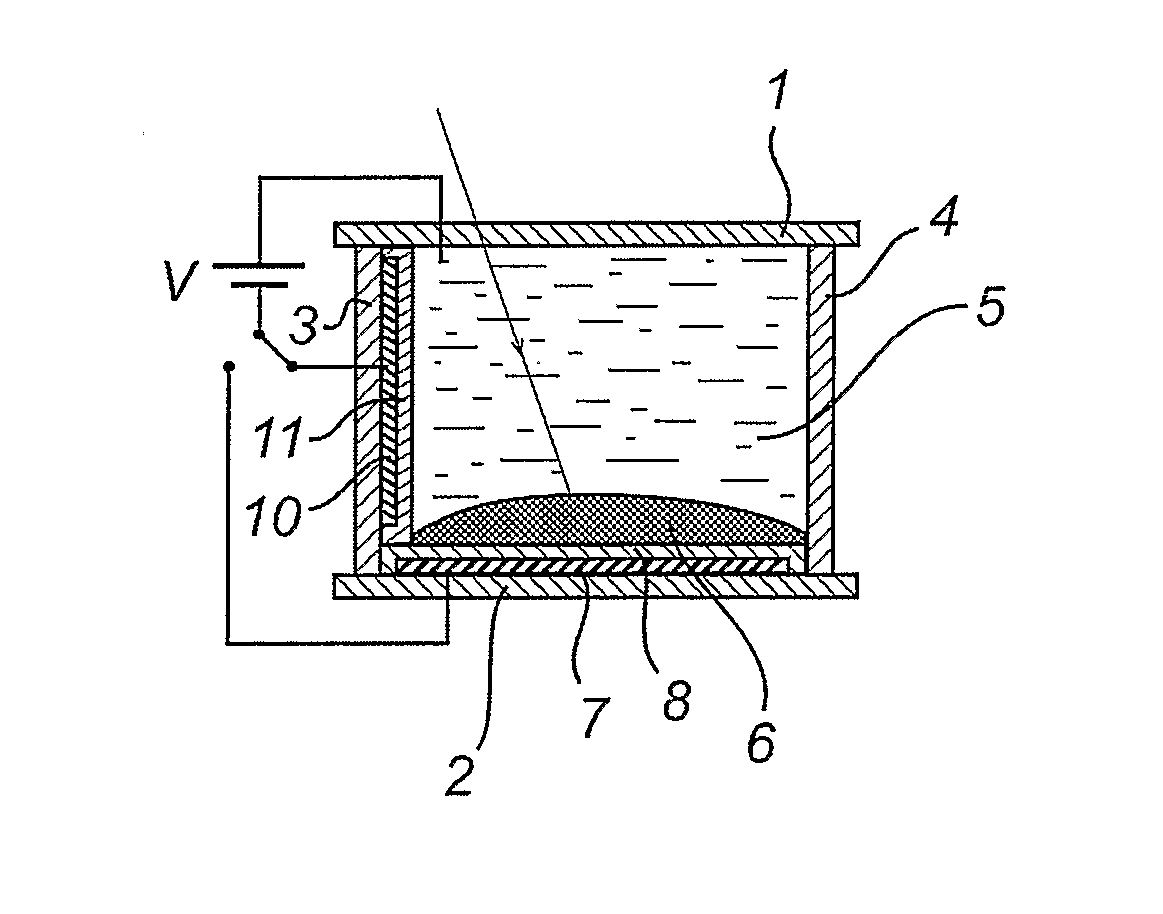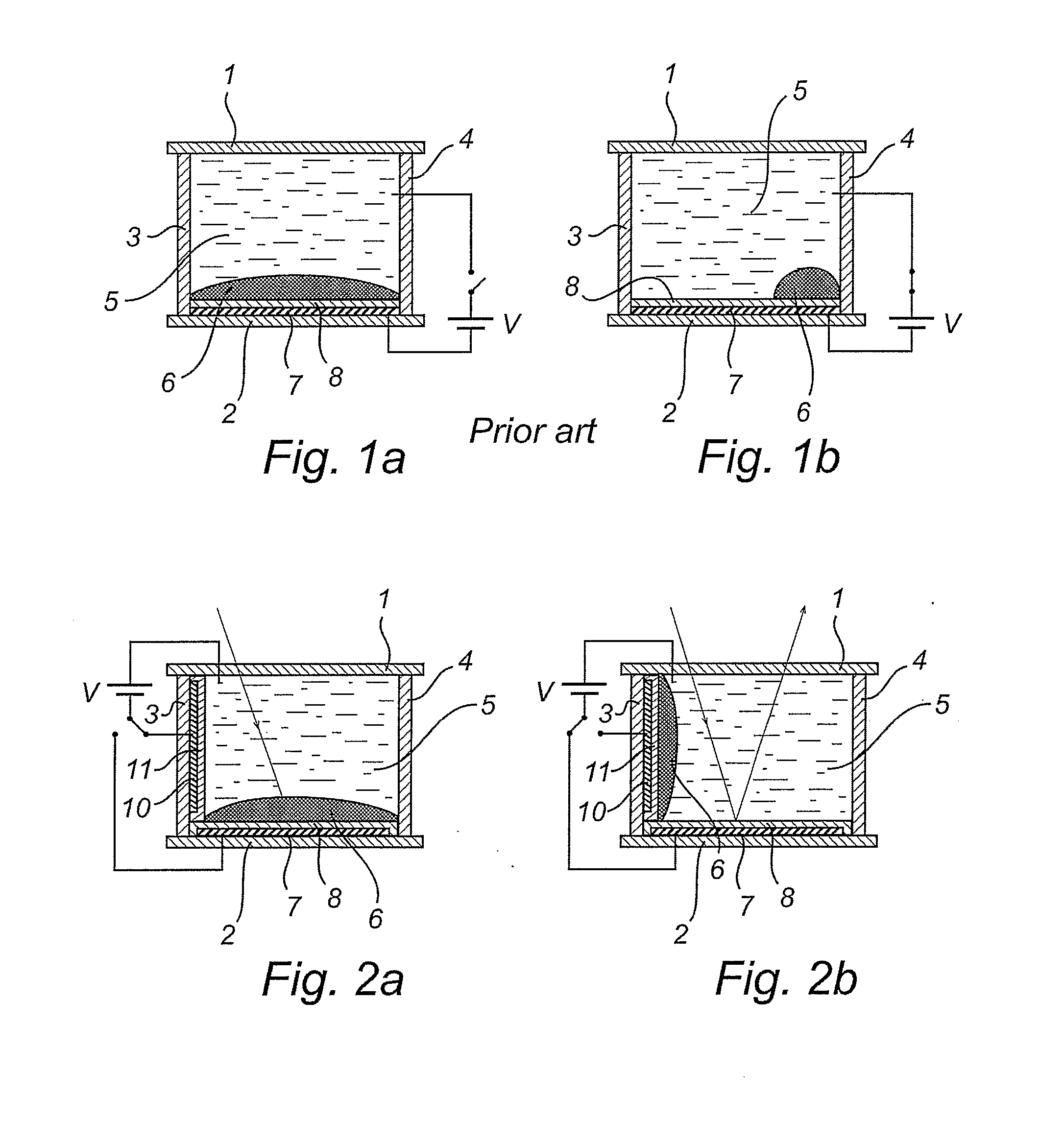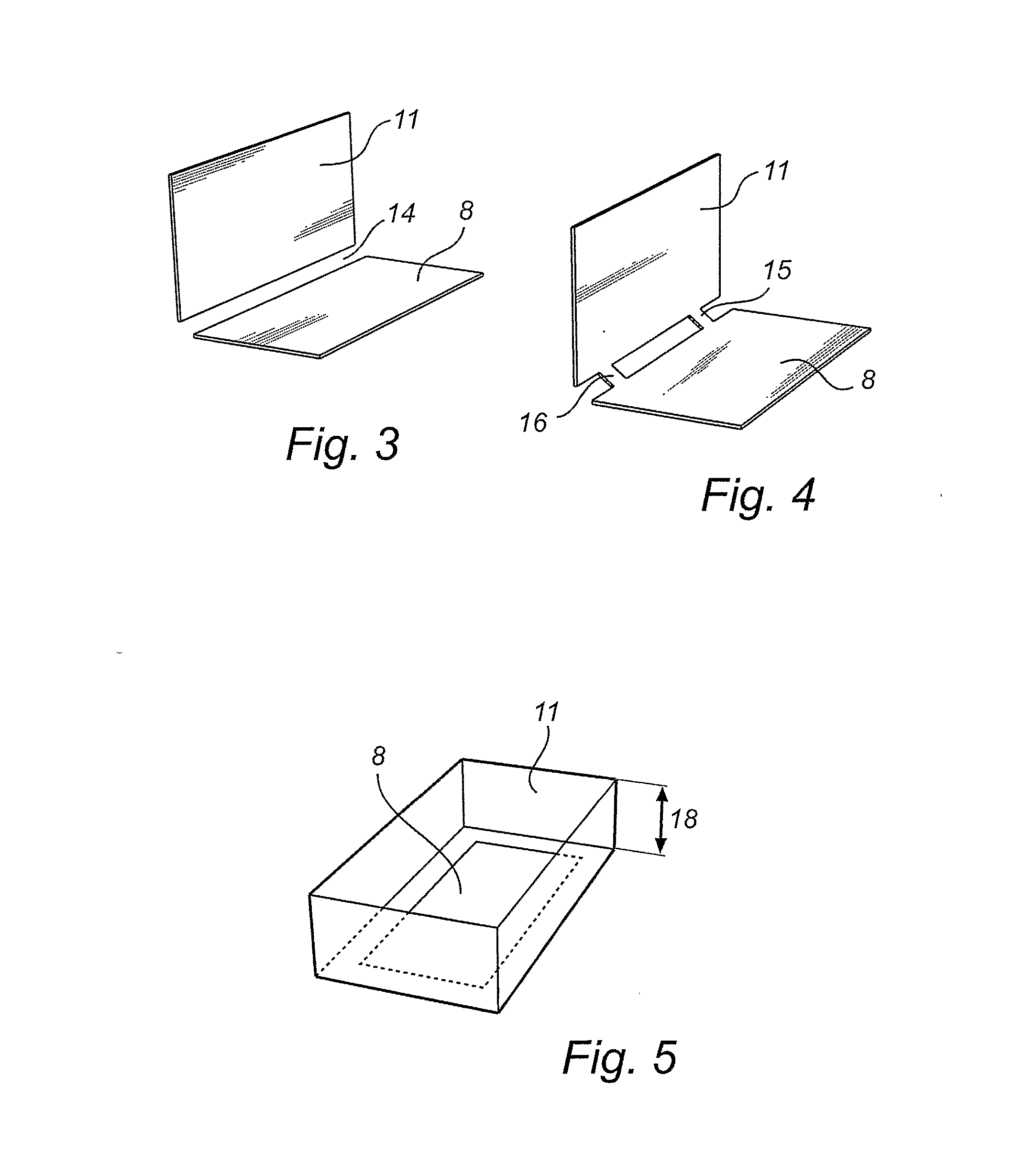Bi-Stable Electrowetting Optical Element and Driving Method Therefor
a technology of optical elements and electrowetting, applied in the field of optical elements, can solve the problems of power consumption, albeit lower, still quite high, power consumption, etc., and achieve the effect of improving power consumption characteristics
- Summary
- Abstract
- Description
- Claims
- Application Information
AI Technical Summary
Benefits of technology
Problems solved by technology
Method used
Image
Examples
first embodiment
[0033]FIG. 3 illustrates hydrophobic insulating layers, arranged in accordance with the invention. The first electrode 7 and the first hydrophobic layer 8 are planar and located in the back wall of the cell as seen from a user, watching a display. The second electrode 10 and the second hydrophobic layer 11 then extend substantially perpendicular to plane of the first electrode, and are then arranged at a side wall (3 in FIG. 2a).
[0034] It should be understood that the first and second electrodes 7, 10 could also be parallel, but the perpendicular arrangement provides the additional advantage of keeping the oil 6 substantially out of the optical path of incoming and reflected light, since the white back wall 2 can be completely uncovered.
[0035] As illustrated in FIG. 3 a continuous gap 14 may be provided between the first hydrophobic layer 8 and the second hydrophobic layer 11. This prevents any transport of the oil 6 between the first and second hydrophobic layers 8, 11, when no vo...
second embodiment
[0036]FIG. 4 illustrates hydrophobic insulating layers, arranged in accordance with the invention. In this embodiment one or more hydrophobic material bridges 15, 16 are provided, which interrupt the otherwise continuous gap between the first hydrophobic layer 8 and the second hydrophobic layer 11. While such bridges 15, 16 to some extent create a risk of unintentional transport of oil 6 between the first and second hydrophobic layers 8, 11, they also make the switching between the two states more reliable by guiding the oil 6 between the first and second hydrophobic layers 8, 11. This reduces the risk that some or all of the oil 6 unintentionally remains on a hydrophobic layer similar to the situation in FIG. 1b.
[0037] The width of the bridges 15, 16 should be chosen experimentally to be wide enough to provide the guiding function, but small enough to avoid unintended transport of oil 6 in a relaxed state.
third embodiment
[0038]FIG. 5 illustrates hydrophobic insulating layers, arranged in accordance with the invention. As illustrated, it is preferred to let the second electrode extend adjacent to more than one side wall of the cell, and even more preferred adjacent to all side walls of the cell. This allows a decreased thickness 18 of the cell even though the total area of the second electrode 10 and the second hydrophobic layer 11 can be retained. The advantage of this is not only a thinner display, when the optical element is used in a display. More important, the viewing angle of the display is improved.
[0039] As described above, the optical element is used as a pixels in a display device, comprising a plurality of such optical elements. However, the optical element may also be used in other applications, such as a switchable diaphragm, a shutter or a colour filter.
[0040] In summary, the invention relates to an optical element, used e.g. in an electrowetting display device comprising a number of ...
PUM
 Login to View More
Login to View More Abstract
Description
Claims
Application Information
 Login to View More
Login to View More - R&D
- Intellectual Property
- Life Sciences
- Materials
- Tech Scout
- Unparalleled Data Quality
- Higher Quality Content
- 60% Fewer Hallucinations
Browse by: Latest US Patents, China's latest patents, Technical Efficacy Thesaurus, Application Domain, Technology Topic, Popular Technical Reports.
© 2025 PatSnap. All rights reserved.Legal|Privacy policy|Modern Slavery Act Transparency Statement|Sitemap|About US| Contact US: help@patsnap.com



